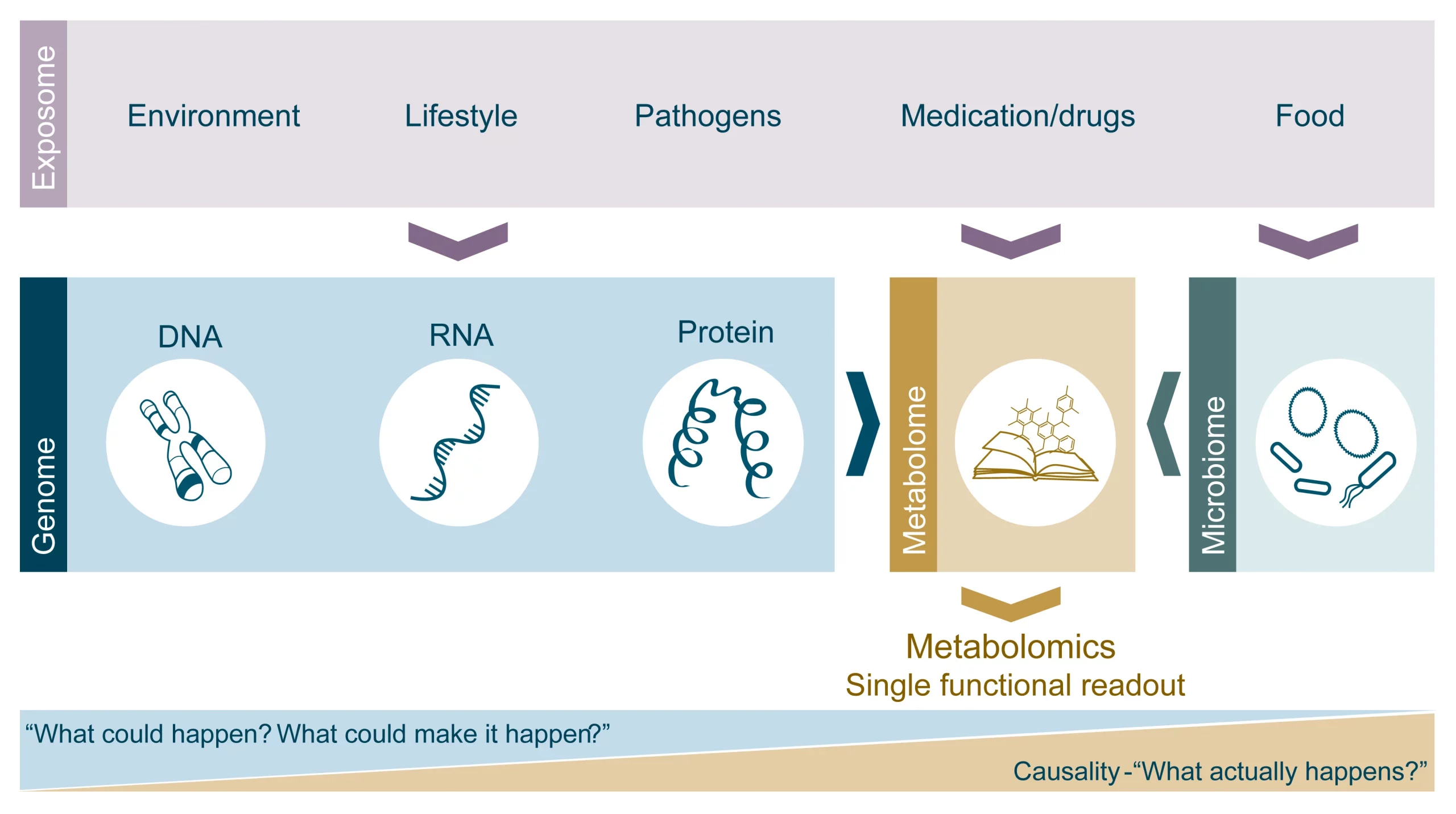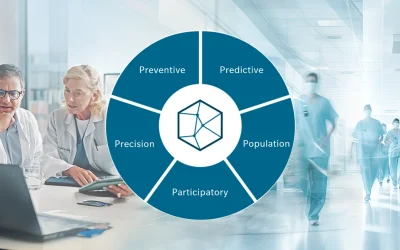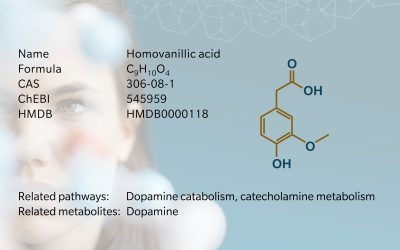Why metabolomics?


Why metabolomics?
From just a few microliters of biological material, metabolomics can unlock the entire phenotype, offering new insights into personalized medicine and human health.
Why study the metabolome?
The metabolism and its products tell our biological life story, from our genetics to our changing environment and lifestyle.
From just a few microliters of biological material, metabolomics can unlock the entire phenotype, offering new insights into human health and is the basis for personalized medicine.
Through the measurement of metabolites, we can profile a person’s metabolic make-up at any given moment, to understand and predict the impact of external influences on their health. From what to eat to which drugs or supplements to take, metabolomics holds the key to personalized health and wellbeing.
And as an emerging field, metabolomics can help us identify new biomarkers to better understand disease.

What is metabolomics?
Metabolomics is the study of chemical reactions involving small molecule metabolites, which are produced during metabolic processes. Through the measurement of metabolites in biological specimens such as urine, feces, saliva and tissues, researchers can get a snapshot of what’s happening at the cellular level, which acts as a blueprint for the organism’s phenotype.
As the newest “omics” field, metabolomics offers a more direct measure of the biochemical activities occurring within cells, for the closest possible representation of the molecular phenotype.
Just as genomics helps us understand a person’s DNA, metabolomics holds the key to their metabolic state, with exciting implications for our understanding of disease and personalized diagnosis and therapy.
Applications of metabolomics
Clinical studies
Metabolomics enables personalized therapies and drug response predictions to make pharmacological treatments more effective
Microbiome
Metabolomics explains microbiome host interactions on a functional level
Neurology
Metabolomics elucidates the functional attributes of the brain, neurodegenerative disease and the gut-brain axis
Nutrition | wellbeing
Metabolomics is a key technology that confirms how eating habits and lifestyle in general influence our well-being and health
Epidemiology and biobanks
Metabolomics is the future for population-based studies to identify risk factors in (sub)populations and improve individual health
a million more
Metabolomics can be used to study different aspects of health and disease. Contact us to find out how metabolomics can be applied to your research
Make metabolomics accessible
It is our mission to make metabolomics accessible to facilitate breakthroughs in biomedical research.
With our pioneering phenotyping products and services, we help scientists and researchers gather new insights about disease prevention and personalized health.
Recent blog articles on metabolomics and its application
How metabolomics is improving healthcare – 6 must-read studies from 2025
biocrates’ standardized metabolomics empowers global research. Here is a selection of how our community of users has translated molecular fingerprints into insights for 5P medicine in 2025.
2025 at biocrates – A year shaped by 5P medicine
2025 was a year shaped by 5P medicine for biocrates. From the evolution of our scientific content to new product highlights and our integration into the Biognosys Group, this year demonstrated how metabolomics brings the five pillars of modern medicine – preventive, predictive, precision, population-based, and participatory – to life.
Homovanillic acid – a major dopamine metabolite
Homovanillic acid (HVA) is a monocarboxylic acid best known for its role as a major dopamine metabolite.
Talk to an expert

biocrates life sciences gmbh
Eduard-Bodem-Gasse 8
6020 Innsbruck | AUSTRIA
Phone +43 512 579823
Fax +43 512 579823-329
biocrates inc.
26895 Aliso Creek Rd Ste B-426
Aliso Viejo, CA 92656-5301
Phone +1 774 424 8150
Operating hours: Mo – Fr | 9 am – 7 pm (EST)





